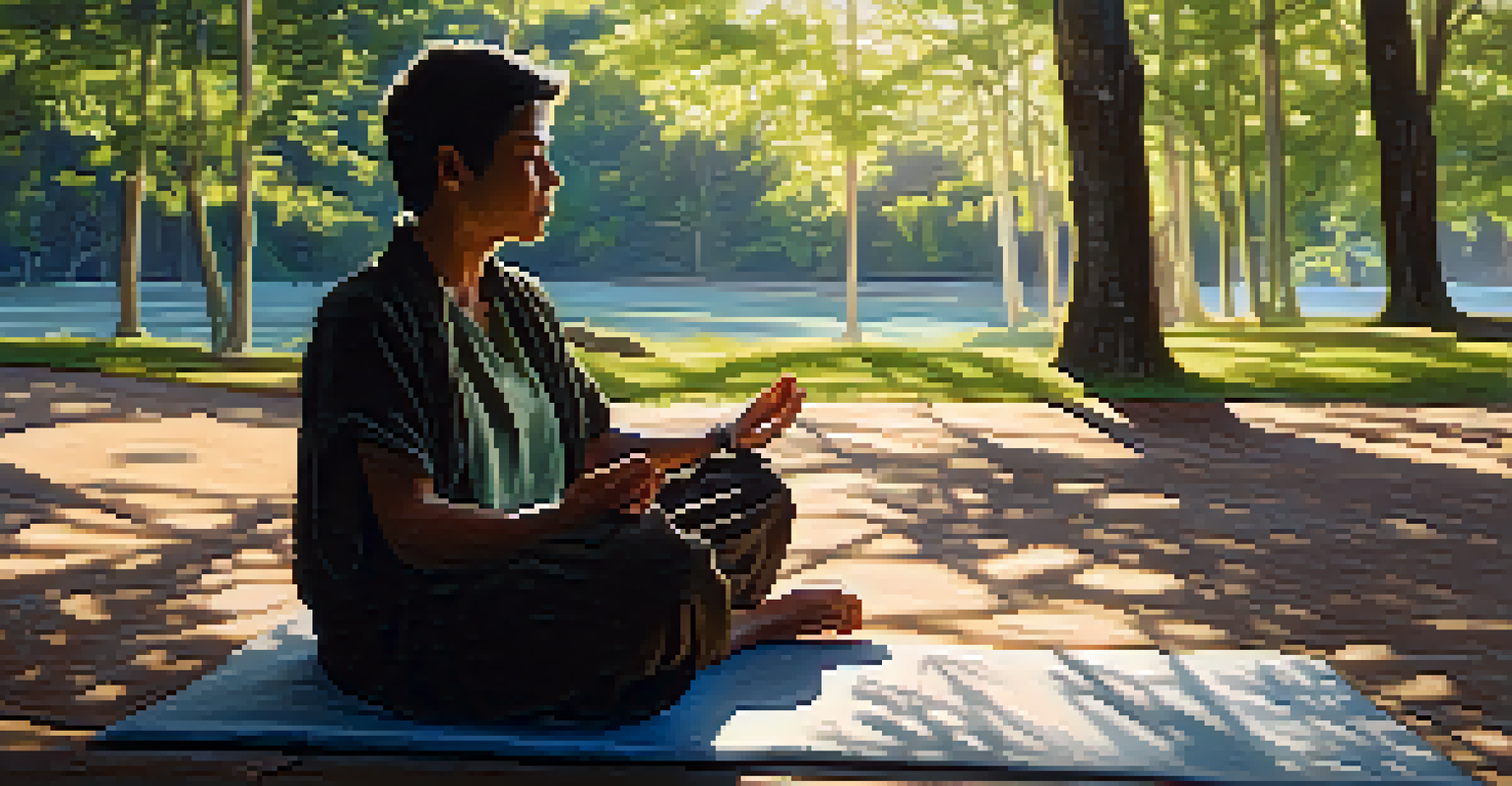Yoga and Assertiveness: Building Boundaries with Confidence

Understanding Assertiveness: The Key to Healthy Boundaries
Assertiveness is about expressing your needs and opinions confidently while respecting others. It's a crucial skill that helps maintain healthy relationships, both personal and professional. By being assertive, you ensure that your boundaries are communicated clearly, which can prevent misunderstandings and resentment.
The greatest weapon against stress is our ability to choose one thought over another.
Incorporating assertiveness into your life may feel challenging at first, but it’s a practice that can be developed over time. Think of it like building muscle; the more you practice, the stronger you become. By learning to say 'no' when necessary, you protect your own well-being and create a space where mutual respect flourishes.
Yoga complements this journey by encouraging self-awareness and mindfulness, essential components of assertiveness. Through the practice of yoga, you become more in tune with your body and emotions, making it easier to identify when your boundaries are being tested.
The Connection Between Yoga and Self-Confidence
Yoga is renowned for its ability to enhance self-confidence. When you engage in yoga, you're not just developing physical strength; you're also cultivating a sense of inner strength that translates into everyday life. This newfound confidence enables you to assert yourself more readily in various situations.

For instance, during a challenging pose, you learn to push through discomfort, which can mirror facing difficult conversations in real life. Each time you successfully navigate a tough asana, you build resilience, reinforcing the belief that you can handle whatever life throws your way.
Assertiveness Builds Healthy Boundaries
Practicing assertiveness helps you express your needs clearly and maintain respectful relationships.
As you continue your yoga journey, this confidence begins to seep into your interactions with others. You may find yourself speaking up more in group settings or standing firm in your decisions, demonstrating the power of yoga in bolstering your assertiveness.
Mindfulness: The Foundation of Assertive Communication
Mindfulness, a key principle in yoga, plays a vital role in effective communication. By practicing mindfulness, you become more aware of your thoughts and feelings, allowing you to express yourself clearly and calmly. This awareness can prevent emotional outbursts and foster constructive discussions.
You can’t stop the waves, but you can learn to surf.
Imagine being in a conversation where tensions are rising. A mindful approach enables you to pause, breathe, and think before responding, rather than reacting impulsively. This shift can transform potentially confrontational interactions into opportunities for understanding and compromise.
Ultimately, mindfulness equips you with the tools to articulate your needs without aggression or passivity. This balance is essential for establishing boundaries that honor both yourself and others.
Setting Boundaries: Why It Matters
Setting boundaries is crucial for maintaining your mental and emotional health. Without clear boundaries, you may feel overwhelmed or taken advantage of, leading to stress and burnout. By establishing limits, you create a healthier environment for yourself and those around you.
Think of boundaries like the walls of a house; they protect your personal space and define what’s acceptable. When you’re clear about your limits, you’re less likely to experience resentment or frustration in your relationships. This clarity fosters respect and understanding among friends, family, and colleagues.
Yoga Enhances Self-Confidence
Engaging in yoga cultivates inner strength, which empowers you to assert yourself confidently in various situations.
Through yoga, you can learn to recognize when your boundaries are being crossed. The practice encourages you to listen to your body and emotions, guiding you toward a more empowered and assertive way of living.
Yoga Techniques to Enhance Assertiveness
Certain yoga poses can specifically boost your assertiveness. For example, standing poses like Warrior I and II promote strength and stability, both physically and mentally. These poses remind you of your power and encourage you to stand firm in your beliefs.
Additionally, grounding poses, such as Mountain Pose, help you connect with the earth, fostering a sense of security and confidence. When you feel grounded, it becomes easier to voice your needs and desires authentically.
Incorporating breathwork into your practice can also enhance your assertiveness. Deep, intentional breathing helps calm your mind, allowing you to approach conversations with clarity and confidence, rather than anxiety.
Overcoming Fear of Rejection Through Yoga
Fear of rejection often holds people back from being assertive. Yoga teaches you to accept yourself as you are, flaws and all, which can help diminish this fear. When you cultivate self-acceptance on the mat, it translates into greater confidence off the mat.
In yoga, each pose is an opportunity to embrace vulnerability, whether you're stumbling or feeling strong. This acceptance fosters a mindset where the fear of rejection becomes less intimidating, allowing you to voice your opinions and set boundaries without hesitation.
Mindfulness Supports Assertive Communication
By being mindful, you can articulate your needs effectively, transforming potential conflicts into constructive conversations.
As you overcome this fear, you’ll find that rejection isn’t the end of the world; rather, it’s a natural part of life. Yoga empowers you to face these challenges with grace, knowing that your worth isn't dictated by others’ opinions.
Integrating Yoga into Daily Life for Assertiveness
Integrating yoga into your daily routine doesn’t have to be time-consuming. Even a few minutes of mindful breathing or a quick yoga flow can set a positive tone for your day. These small practices build a foundation for assertiveness in your interactions.
Consider starting your day with a few sun salutations or a calming meditation. This practice can help you center your thoughts and intentions, making it easier to approach daily challenges with confidence and clarity.

As you become more comfortable with yoga, you can also use its principles in everyday situations. Whether it's speaking up in a meeting or setting boundaries with friends, the skills you develop on the mat can enhance your assertiveness off the mat.